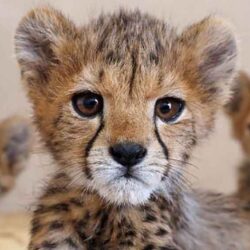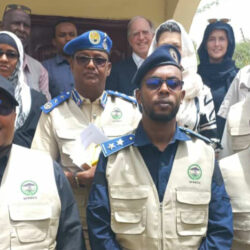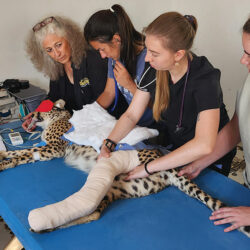Somali State-Somaliland Border Meeting on Cheetah Trafficking
-
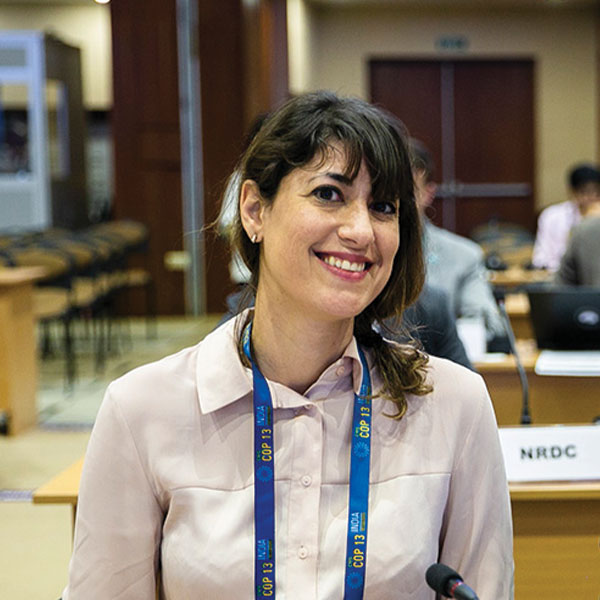
- by Dr. Shira Yashphe October 27, 2020
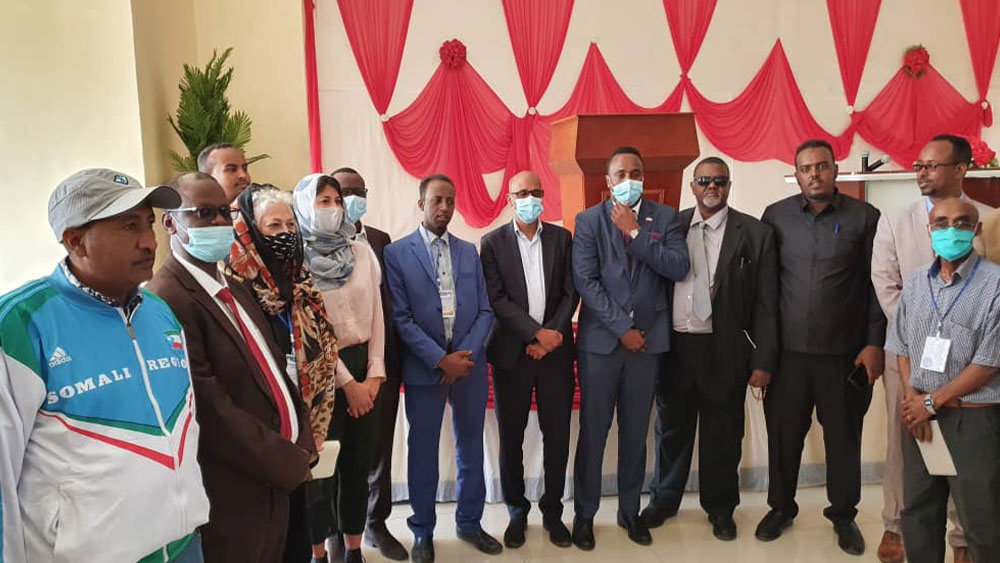
Wildlife law enforcement officials from the Somali region of Ethiopia and Somaliland met in Jigjiga, on 10-11 November 2020 to discuss the urgent need for stronger bilateral cooperation to halt the illegal trade in live cheetah cubs taken from the wild in Somali region and Somaliland, and trafficked to the Middle East for sale as exotic pets.
The event was hosted by the Somali Regional State Bureau of Environment, Forest, and Climate Change and its newly appointed Head, Mr. Hassan Farah, and the Ethiopian Wildlife Conservation Authority (EWCA), bringing together wildlife and enforcement officials from all levels: federal, regional, and zonal. H.E. Mr. Kumara Wakjira, EWCA’s Director-General, and H.E. Mr. Abdinasir Hersi, Director General of Somaliland’s Ministry of Environment and Rural Development (MoERD) were joined by the Vice President of the Somali Regional State of Ethiopia, H.E Mr. Ibrahim Osman, giving opening remarks before presentations and discussions commenced.
The Cheetah Conservation Fund (CCF), the International Fund for Animal Welfare (IFAW), and the Ethiopia GEF program “Enhanced Management and Enforcement of Ethiopia’s Protected Areas Estate” participated and provided support for the event. The United Nations Office on Drugs and Crime (UNODC) also contributed its support to the meeting.
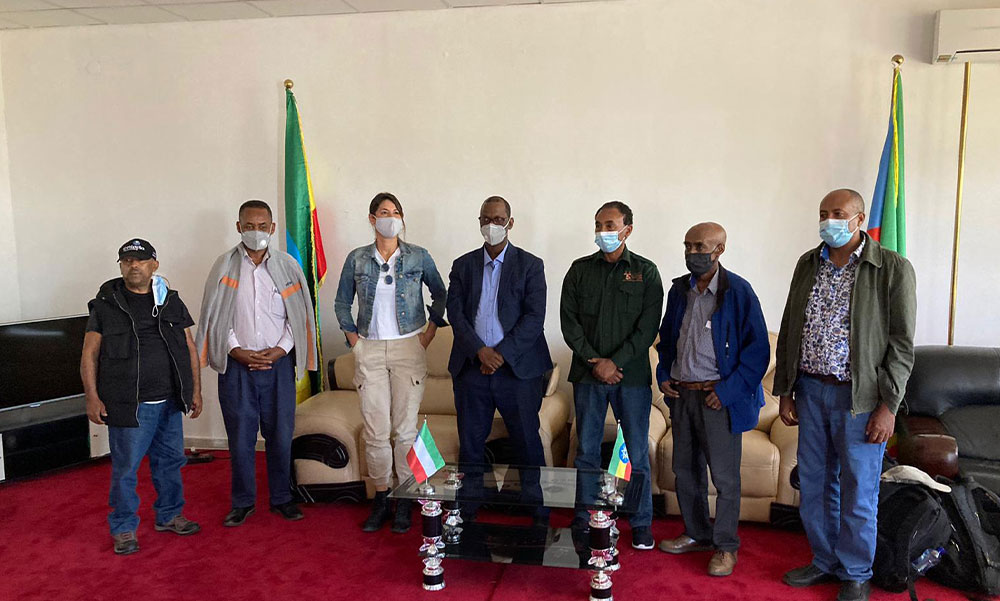
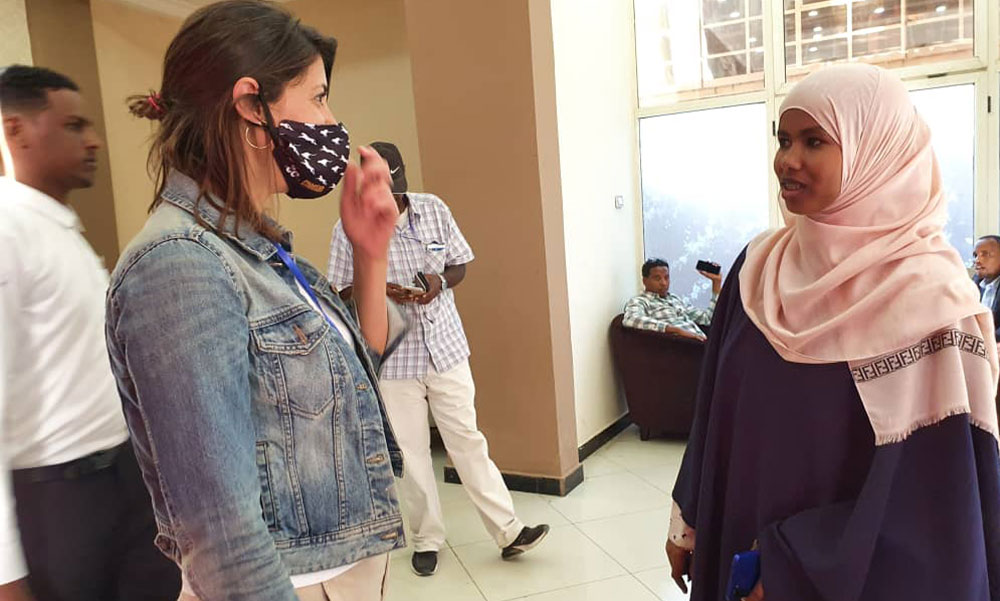
Day 1: November 10th 2020 – Presentations and Discussion Groups
During the first day of meetings, presentations focused on the status of wildlife conservation in the two regions as well as the extent and scope of the illegal trade in cheetah cubs:
- Daniel Pawlos, EWCA’s Wildlife Director spoke of threats to wildlife on a federal and regional level;
- Adbinasir Said, MoERD’s Wildlife Director, spoke of recent confiscations conducted by the Ministry which saw 39 cheetah cubs and one leopard confiscated since July 2020, necessitating cross-border collaboration;
- Arega Mekonnen, Project Manager for the GEF Enhanced Management and Enforcement of Protected Area Project reviewed his project’s objectives; and
- Dr. Laurie Marker, Founder and Executive Director of the Cheetah Conservation Fund, discussed the UK DEFRA-funded LICIT project and the work CCF conducted at the Somaliland Safe House.
Following presentations, participants engaged in a group discussion, reviewing two main topics: models for cross border collaboration and ways to engage communities on wildlife crime.
Main point raised by participants:
- Issues related or contributing to wildlife crime include:
- The need to build capacity of authorities
- The need to build knowledge of wildlife conservation within local agencies
- The need for support from the federal level: both in terms of capacity building and in terms of financial assistance
- Lack of prioritization of wildlife protection. Issues with livestock take precedence, wildlife offences are not prosecuted or pursued as anything related to HWC is not viewed as a crime
- In some border areas, deforestation is a big issue, allowing for easy access to wildlife and increased poaching
- Communities lack alternatives for income generation. Livelihood development is thus key to any strategies against wildlife crime
- Compensation mechanisms for cases of HWC need to be considered
- To stop illegal trade and trafficking in cheetahs and other wildlife, short-, mid- and long-term steps are to be taken. These include interim, informal collaboration frameworks between field officers on both sides of the border and at a later stage, a formal MOU and collaborative action plan.
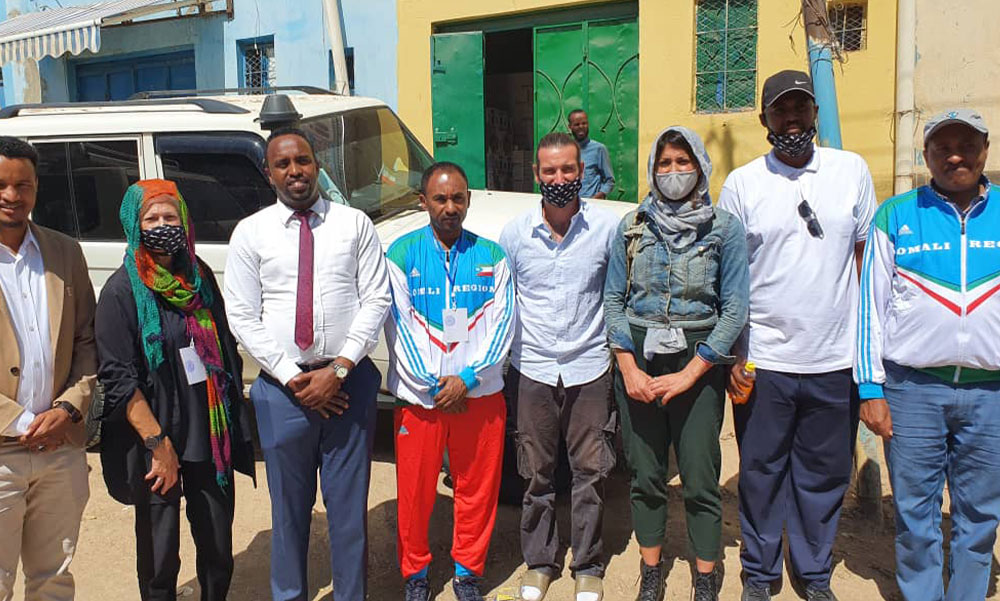
The meeting was concluded with a statement read out by the Mr. Hassan Farah, EFCC Bureau Head, proclaiming the two entities’ dedication to cross-border collaboration. In the statement, participants recognized that:
- Trafficking is a significant threat to the wild cheetah population in Somali region and Somaliland as well as gazelles and other wild species that are trafficked;
- Cheetah trafficking is an organized, cross-border criminal activity that undermines the rule of law, fosters corruption, and threatens the welfare and security of communities where trafficking takes place;
- Coordinated action is necessary at the local, national, and regional levels to put an end to illegal trade in cheetahs and other wildlife by strengthening enforcement and helping communities to understand the value of wildlife resources and take steps to protect them;
- Because trafficking crosses their common border, cross-border cooperation between Somali Regional of Ethiopia, Ethiopia and Somaliland is an essential element of action against trafficking at all levels;
- Such action should be strengthened by establishing a network of contacts among Somali Region of Ethiopia and Somaliland authorities including local authorities in affected communities, and other partners and stakeholders;
The abovementioned next steps were included in the joint statement agreed upon.
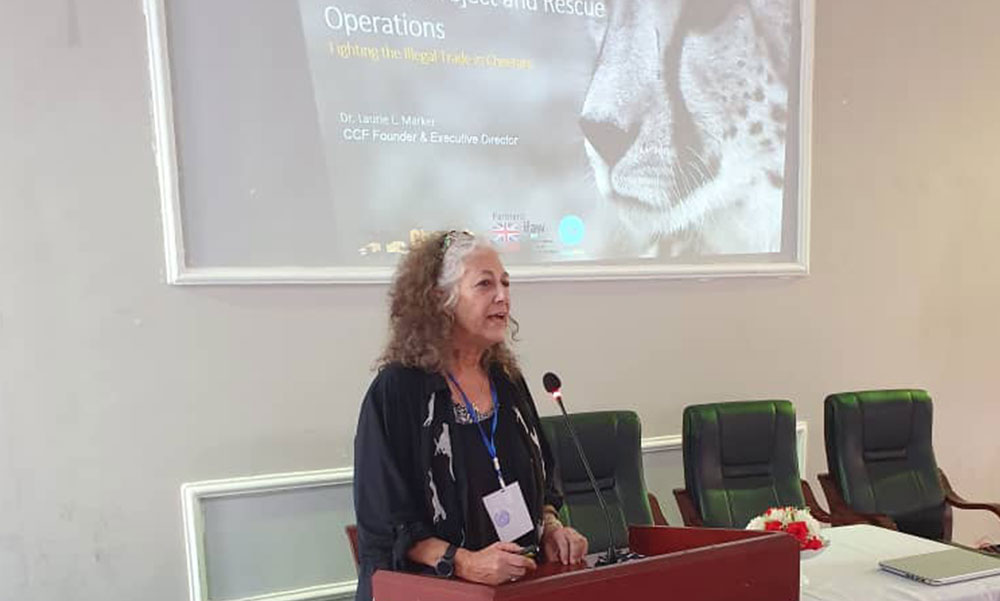
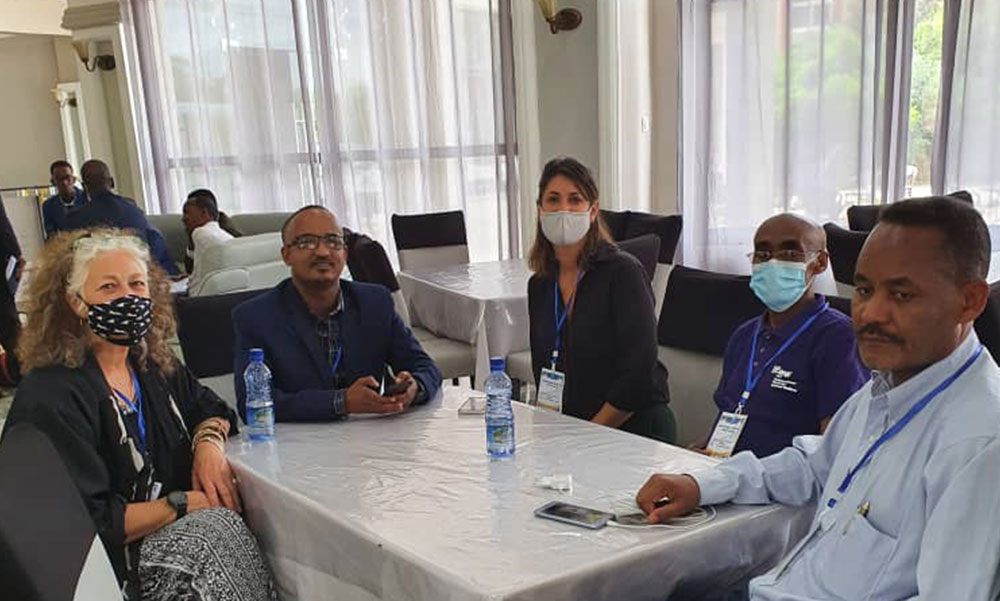
Day 2: November 11th 2020 – Meeting with the SRS President and Wajale Visit
The Ethiopian and the Somaliland delegations were invited to a meeting with the Somali Regional State President, H.E Mr. Mustafa Muhummed Omer, at his presidential palace. The commitment to environmental issues in general, and wildlife protection ones in particular, was emphasized by the President. This is a historic event, showing the priority given to environmental matters as manifest also by the forming of the new State Bureau on Environment, Forest, and Climate Change.
The two delegations then traveled to the border town of Wajale for lunch and a final meeting, seeing off the Somaliland delegation as it traveled back to Hargeisa with Dr. Marker and the CCF Safe House team.
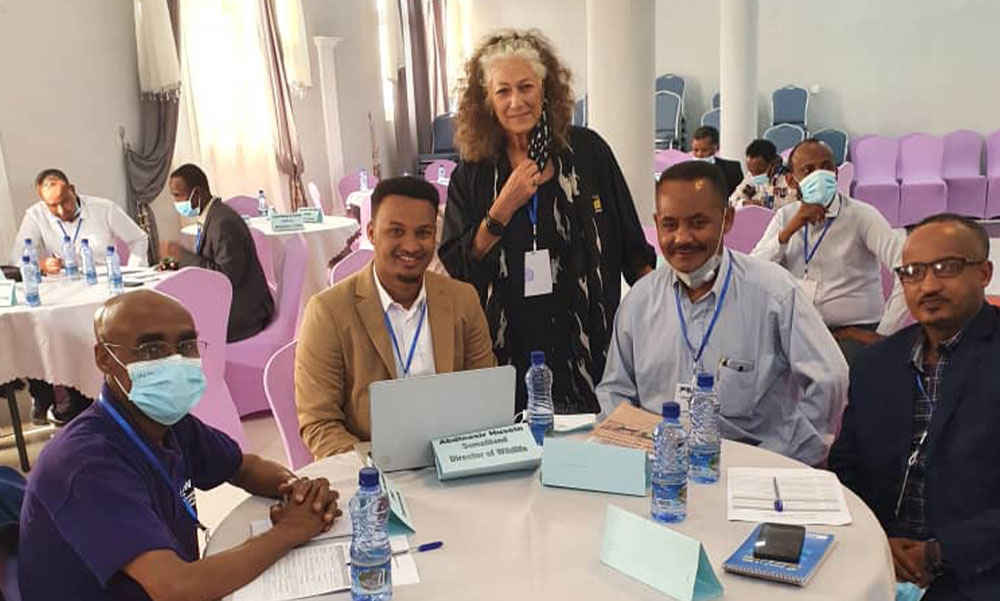
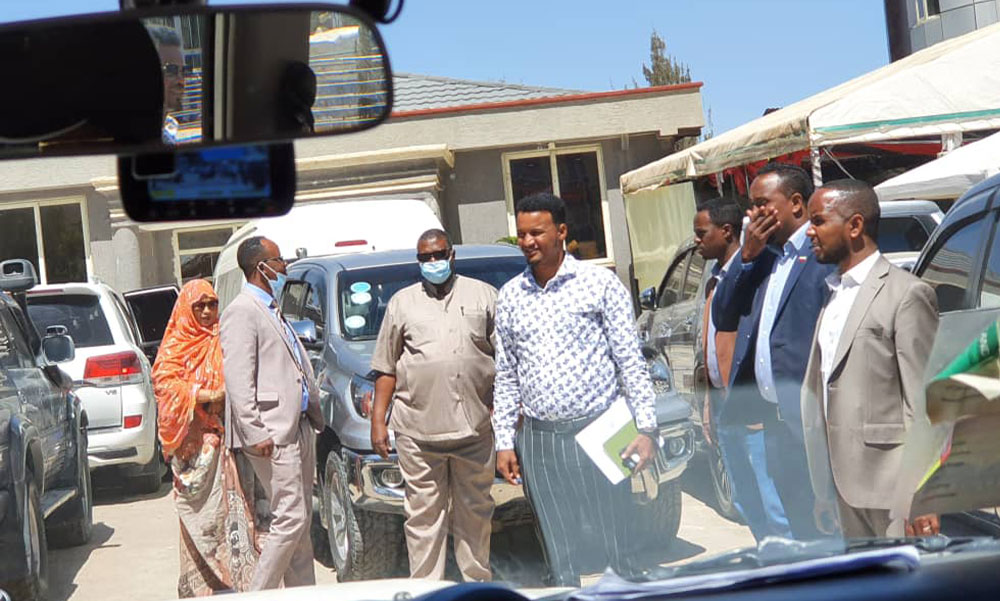
Related Reading
-
June 12, 2024
Continuation Assigned Task is National Obligation -
March 8, 2023
Support the Cheetah Rescue and Conservation Centre

